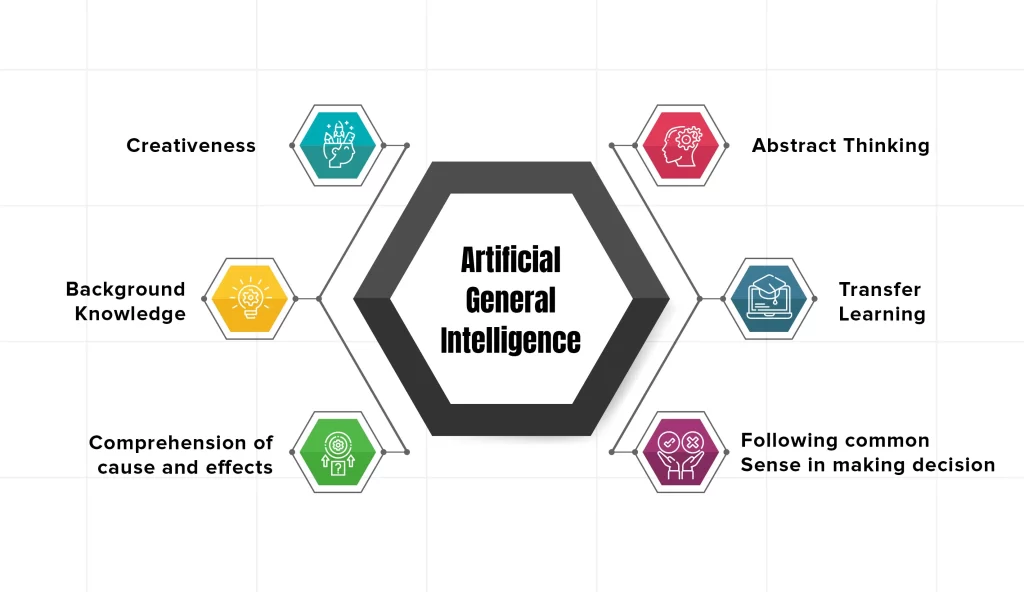Why in the news?
In a recent interview, Sam Altman, the CEO of OpenAI, expressed his dedication to allocating significant funds toward advancing the development of Artificial General Intelligence (AGI).
About Artificial General Intelligence
- AGI refers to a machine or software capable of executing any intellectual task a human can.
- This encompasses reasoning, common sense, abstract thinking, background knowledge, transfer learning, and discerning cause and effect.
- Its goal is to replicate human cognitive abilities, enabling it to tackle unfamiliar tasks, learn from novel experiences, and employ its knowledge in innovative ways.

How is Artificial General Intelligence (AGI) different from AI we already use?
- The primary distinction between AGI and narrow AI, also known as specialised or narrow intelligence, resides in their breadth and functionalities.
- Narrow AI is engineered to excel in particular tasks like image recognition, translation, or gaming, such as chess, where it can surpass human capabilities. However, it operates within predefined parameters.
- Conversely, AGI aims for a wider, more generalised intelligence akin to humans, not restricted to any specific task.
| Aspect | AGI | Current AI |
| Scope | Envisions broad, generalised intelligence | Typically specialised for specific tasks |
| Adaptability | Flexible, capable of learning new tasks | Often rigid, designed for predefined functions |
| Autonomy | Able to operate independently | Often requires human intervention or supervision |
| Complexity | Mimics human-level cognitive abilities | Lacks the complexity of human cognition |
| Self-awareness | May potentially exhibit self-awareness | Lacks self-awareness |
| Creativity | Has the potential for creative problem-solving | Lacks creative capabilities |
Applications of AGI
Healthcare:
- AGI has the potential to revolutionise diagnostics, treatment planning, and personalised medicine by integrating and analysing extensive datasets beyond human capacity.
Finance and Business:
- AGI has the capability to automate multiple processes and improve decision-making in finance and business sectors, providing precise real-time analytics and market forecasts.
Scepticism about AGI
- Complexity: AGI involves creating a system with human-like cognitive abilities, a feat that remains highly complex and uncertain.
- Ethical Concerns: There are ethical dilemmas surrounding AGI, such as the potential for misuse or the creation of systems with unintended consequences.
- Control and Safety: Concerns persist about the ability to control AGI systems once they reach human-level intelligence, including the potential for them to act in ways detrimental to humanity.
- Unpredictability: AGI development involves navigating unknown territory, leading to uncertainty about its behaviour and impact.
- Technological Limitations: Despite advancements, current technology may not be sufficient to achieve AGI, leading to doubts about its feasibility in the near term.


Leave a Reply
You must be logged in to post a comment.